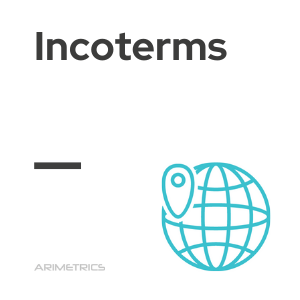Definition:
Incoterms are acronyms that are used in international trade and that serve to unify the language used by buyers and sellers in transactions. The word comes from the English International Commerce Terms, and refers to a language unified by a series of international rules.
How incoterms work
Basically they are three-letter terms that regulate the following aspects:
- Delivery of the goods.
- Transmission of risks.
- Distribution of expenses.
- Customs formalities.
Its main function is, therefore, to dispel doubts about who the risks and costs in a transaction between a buyer and a seller fall on at any given time.
They were created by the International Chamber of Commerce (ICC) in 1936 and have since undergone an update for about a decade in order to adapt to changes in trade. Currently, those of 2010 apply, which add terms to those already existing. Therefore, it is always necessary to include the year next to the corresponding incoterm.
Incoterms are used only in product transactions, since in service transactions it is not necessary to regulate logistics.
Types of Incoterms
The main types of incoterms are grouped by the initial letter, so that they indicate:
- C – Indirect delivery, with payment of the main transport. The seller assumes the cost of shipping, but not other possible costs derived, such as losses or deterioration.
- D – Direct delivery on arrival. It means that the seller is responsible for getting the product directly to the buyer.
- E – Direct delivery on departure. In this case, the seller delivers the goods to the buyer directly at his premises.
- F – Indirect delivery, without payment of the main transport. The seller takes care of the shipment, but in a means of transport chosen and paid for by the buyer.
The incoterms of 2010, both only for the transport of goods by ship and in all types of means, are the following:
- CFR (Cost and Freight) or, what is the same, cost and freight. Only for maritime or river transport.
- CIF (Cost, Insurance and Freight):cost, insurance and freight. Only for maritime or river transport.
- CIP (Carriage and Insurance Paid to):transportation and insurance paid up to. Valid for any means of transport.
- CPT (Carriage Paid To): transport paid until. Suitable for any means of transport.
- DAT (Delivered at Terminal): delivered to terminal. It replaces the incorterm DEQ (Delivered Ex Quay). For all types of transport.
- DAP (Delivered at Place): delivered at one point. Incoterm appearing in 2010 in place of DAF (Delivered At Frontier), DDU (Delivered Duty Unpaid) and DES (Delivered Ex Ship). Suitable for all means of transport.
- DDP (Delivered Duty Paid):delivered with paid duties. All transports.
- EXW (Ex Works): in factory. Any type of transport, even multimodal.
- FAS (Free Alongside Ship): free on the side of the ship. It is common in bulk or high-volume goods, which are unloaded at special terminals.
- FCA (Free Carrier): free carrier. All transports.
- FOB (Free On Board): free on board. Only for maritime or river transport.

